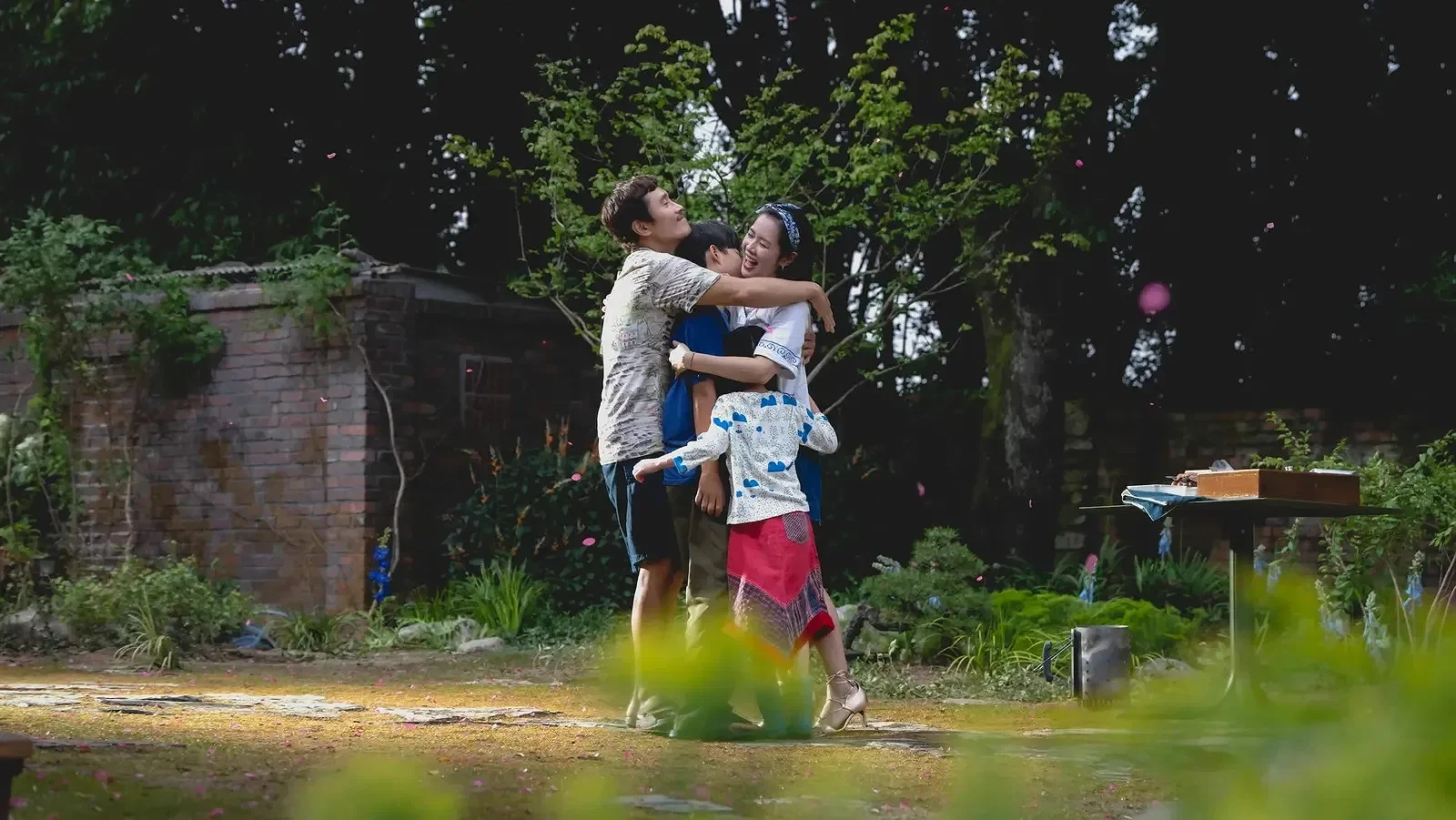AFF ’25: No Other Choice
Based on crime novelist Donald E. Westlake’s The Ax, No Other Choice (2025) screened at this year’s Austin Film Festival. This marks the second screen adaptation of the book, following Costa-Gavras’ 2005 version. This time, the film is directed by acclaimed South Korean filmmaker Park Chan-wook (Oldboy, The Handmaiden). The director has referred to the making of this film as his “lifetime project,” having first announced his intentions as far back as 2009. In a world where there is no such thing as job security, No Other Choice resonates as an apt satire-thriller of employment anxiety.
Lee Byung-hun (Squid Game) stars as Man-Soo, a longtime employee in the paper industry who enjoys the affluence of his successful career. He has a loving wife whom he spoils with golden dancing shoes, two children, and even two dogs. This is a content individual who grills eel as a late summer-delicacy in an opening patio dinner scene. Life is good for Man-Soo, just as long as the paychecks keep coming in. However, when his job is suddenly terminated due to layoffs from an American corporate takeover, Man-Soo goes to dark lengths to secure his next employment.
No Other Choice is stunning in its cinematography, as Man-Soo stalks his competition in alleyways and forests. The fall aesthetic of the film functions well, featuring dramatic sequences amongst autumn’s fallen leaves. All of Man-Soo’s competitors are “Paper Men”, longtime experts in their industry. They are authorities of an outdated medium in the digital world. Thus, it makes sense that they would be surrounded by the very material of their own product, their residential homes enclosed by woodlands, with timbered logs ready for the fireplace. Man-Soo even has his own greenhouse, as his barbed-wire plants provide him inspiration on how to dispose of his competition.
Man-Soo’s reaction to unemployment is really extreme, even for satire. Byung-hun’s leading performance matches the character’s frenzied actions, his smile ever so wide as Man-Soo deals with both the pain of a rotting tooth and rotting corpses. During the course of the movie, Man-Soo has to present an increasingly false image of himself to everyone around him—his family, his rivals, and the investigating police. Man-Soo is in a complete nervous state, made more manic after an unsuccessful job interview. The lengths that Man-Soo goes to maintain the false tranquility of domestic bliss is the heart of this dark comedy.
Even though this film is a South Korean production, its American origins are felt throughout the film in both song and costume. Man-Soo dances with his wife Lee Mi-ri (Son Ye-jin) to the music of 1960s jazz, (“Loie” from saxophonist Ike Quebec). Similarly, one of Man-Soo’s rivals listens to Sam & Dave’s 1960s soul classic “Hold On, I’m Coming”, whose famed lyrics are satirically juxtaposed to the plot of movie (“Don’t you ever be sad / Lean on me, when the times are bad”). Later in the film, Man-Soo joins a costumed dance party, dressed as John Smith to his wife’s Pocahontas outfit. The inclusion of American culture emphasizes how each society is similar in its strive to maintain posterity.
Director Park Chan-wook is one of the seminal figures in South Korea’s film renaissance that has existed for the past several decades. His Oldboy (2003) is still a landmark cult classic that was needlessly remade by Spike Lee a decade later. The acclaim that No Other Choice has generated thus far, already selected as the South Korean entry for the upcoming 98th Academy Awards, may duplicate the success that Bong Joon Ho’s Parasite (2019) earned. Even though the world has changed dramatically in just the past several years, as it always does, No Other Choice still resonates with international audiences with its satire upon the woeful job market.
If there is any criticism to offer, it’s that the film’s plot is definitely satire-motivated as opposed to being character-driven. The transition of Man-Soo going from blissful family man to deranged killer is sudden, requiring the utmost suspension of disbelief. The comedy works in Preston Sturges’ classic dark comedy Unfaithfully Yours (1948) because Sir Alfred de Carter (Rex Harrison) fails so spectacularly to stage his murderous impulses. Likewise, Man-Soo’s assassinations are not without amateur bumbling, so the comedy is on point. However, their eventual execution lands the satire’s blow a little soft upon the mortal cost of success. Despite what the title indicates, there are other films to choose come awards season.
If you enjoyed this article, please consider becoming a patron of Hyperreal Film Journal for as low as $3 a month!



Paul Feinstein is an arts professional who has produced content in different mediums including film screenings, live music, radio, and theater. He is a native Austinite.